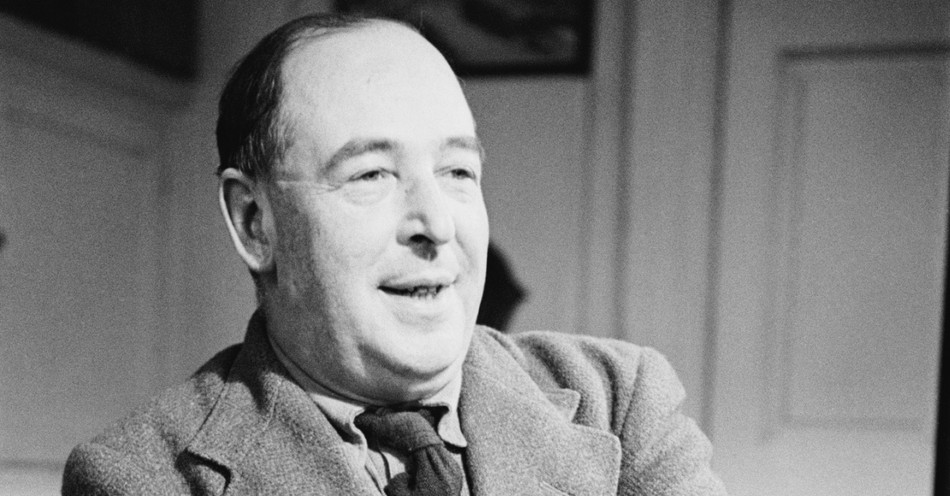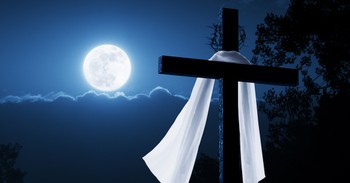SPECIAL OFFER: Enroll in this free online course on C.S. Lewis today!
There's a strong argument to be made that C.S. Lewis is the bestselling Christian author of the last century and maybe the best-known. Whether through his fantasy series, the Chronicles of Narnia or his apologetics classic Mere Christianity, or his satire The Screwtape Letters, the chances are quite good that you've heard his name and read at least one of his books. Let's take a deeper look at what made this Oxford medieval literature professor one of the most influential Christians in history.
Table of Contents
- Why Does C.S. Lewis Matter Today?
- C.S. Lewis Converts to Christianity
- The Death of C.S. Lewis
- 10 Things You Didn't Know about C.S. Lewis
- Further Reading
Why Does C.S. Lewis Matter Today?
C. S. Lewis’s legacy endures 50 years later, his writing remaining a great gift to both the church and the world. Lewis’s classical training and keen intellect equipped him with razor-sharp reason. His expertise in medieval literature and a lifelong love for story and mythology fertilized a verdant imagination. His early atheism gave him both sympathy with skeptics and the ability to convincingly critique the very positions he had once so tenaciously held. And his slow but thorough conversion to Christ baptized his reason and imagination, which together gave birth to several dozen books ranging from poetry, allegory, science fiction, and fantasy to theology, apologetics, literary criticism, and ethics. Lewis’s books continue to glow with goodness, sparkle with beauty, and pulsate with truth, challenging the minds and nourishing the imaginations of children and adults alike.
(Excerpted from "The Enduring Legacy of C.S. Lewis" by Brian Hedges. First published on Christianity.com on November 11, 2013)
C.S. Lewis Converts to Christianity
Individuals have surrendered their lives to Christ in all sorts of places. The revivalist Charles G. Finney converted in the woods; John Newton, author of the hymn "Amazing Grace," repented while lashed to a ship's wheel in a storm; Chuck Colson, a founder of Prison Ministries, asked God into his life while crying in a car on a roadside. C. S. Lewis converted while riding to a zoo in his brother's motorcycle sidecar.
"When we set out I did not believe that Jesus is the Son of God and when we reached the zoo I did." Jack (as he preferred to be called) had earlier become a theist—one who believes there is a God. He was converted to full Christianity on this day, September 22, 1931, following a long talk he'd had on the 19th with two Christian friends: J.R.R. Tolkien and Hugo Dyson.
Tolkien, who was soon to create the most imitated fantasy of our century, The Lord of the Rings, argued that even some myths can originate in God, preserving truth, however, distorted. One might do God's work by writing myths. Lewis doubted myths embodied truth at all. The three argued until 3 A.M., when Tolkien went home. Dyson and Lewis walked and talked some more. Dyson insisted Christianity works. It puts the believer at peace, frees him of sin, and provides outside help to straighten him out.
On Christmas Day, C. S. Lewis joined the church and took communion. He felt that faith had given him a solid footing; he had lacked a sense of direction for his talent. By the middle of 1932, he had written the first of the many books which made him one of the best-loved 20th-century Christian apologists: The Pilgrim's Regress. He would go on to create his own wonderful fantasy world: Narnia.
Asked to present a series of radio talks, he gave the broadcasts which were brought together in his book Mere Christianity. These include probably the most famous quotation of all apologetics: "A man who was merely a man and said the sort of things Jesus said would not be a great moral teacher. He would either be a lunatic—on the level with a man who says he is a poached egg—or else he would be the devil of hell. You must make your choice. Either he was and is the Son of God: or else a madman or something worse. You can shut him up for a fool, you can spit at him and kill him as a demon; or you can fall at his feet and call Him Lord and God. But let us not come with any patronizing nonsense about his being a great human teacher. He has not left that open to us. He did not intend to."
Lewis married an American divorcee, Joy Gresham. She contracted a painful cancer. The story of her dying and his grief has twice been filmed as Shadowlands.
Bibliography
- Gresham, Douglas H. Lenten Lands: My Childhood with Joy Davidman and C. S. Lewis. New York: Macmillan, 1988.
- Lewis, C. S. Mere Christianity. New York: Macmillan, 1970.
- --. Surprised by Joy. New York: Harcourt, Brace and World, 1955.
- "Lewis, Clive Staples." Dictionary of National Biography. Edited by Leslie Stephen and Sidney Lee. London: Oxford University Press, 1921 - 1996.
- Petersen, William J. C. S. Lewis Had a Wife; Catherine Marshall Had a Husband. Wheaton, Illinois: Tyndale House, 1986.
- Sayer, George. Jack: C. S. Lewis and His Times. San Francisco: Harper and Row, 1988.
- Wellman, Sam. C. S. Lewis: Author of Mere Christianity. Urichsville, Ohio: Barbour, nd.
- Various other accounts of Lewis' life in books, encyclopedias, and on the internet.
(Reprinted from "C.S. Lewis' Sidecar Conversion" by Dan Graves, MSL. Last updated April 2007. First published on Christianity.com on April 28, 2010)
The Death of C.S. Lewis
This is the date remembered around the world, annually recalled on the evening news as the date that President John F. Kennedy was assassinated in Dallas. Far less noticed is the fact that another famous twentieth-century figure also died on this date. On this day, November 22, 1963, C.S. Lewis (who preferred to be called "Jack") went to be with the Lion named Aslan.
To understand what that means, we must recall that Jack was one of the world's outstanding writers and a professor of English Literature at Oxford and Cambridge Universities. He succeeded in capturing the imagination of young and old with his Chronicles of Narnia. These seven books tell the story of boys and girls magically stepping through their wardrobe closet to venture into a fictional land protected by Aslan, a magnificent lion who symbolizes Christ. The stories have proved to be more than captivating reading adventures for children. They also have been an effective instrument for converting many to faith in Jesus Christ.
Jack referred to himself at age 14 as a "happy atheist," but after years of analytical thinking, he concluded that knowing Christ is the only logical way to understand both man and the universe around him. Accepting Christ as his redeemer at age 30, Jack soon achieved worldwide recognition as the author of more than 25 Christian writings. Perhaps best known of his non-fiction books is Mere Christianity, a simple yet strikingly logical statement of why the Gospel is worthy of acceptance.
Remarkably, Jack stands out as one of history's gifted geniuses who has had the versatility to fascinate and delight children with his simple stories of Aslan and at the same time challenge the most scholarly philosophers with his profound thought and keen logic. One of his widely known scholarly writings is English Literature in the Sixteenth Century. Another, The Abolition of Man, was classified by Encyclopedia Britannica as one of the Great Books of the World.
Jack suffered from kidney problems late in life and had to have many transfusions. Once he went into a coma. However, he revived and continued to read new books and reread the books he loved. Those close to him observed that Lewis anticipated death with cheerfulness and peace. A week before his death, Jack shared with his brother these words: "Warnie, I have done all that I was sent into the world to do, and I am ready to go." Warnie later remarked that he had never seen death looked in the face so tranquilly.7
At five-thirty on this day, November 22, 1963, Jack's brother Warnie heard a crash and found Jack unconscious. The famous writer died a few minutes later.
Shadowlands, a BBC film on Jack's life, co-produced with Gateway Films, won the International Emmy award for best drama and spun off a stage play and theatrical feature film of the same title, bringing the life of this English professor to a widely popular audience. Today, millions continue to read, enjoy, and benefit from the remarkable works of C.S. Lewis.
Bibliography:
- Based on an earlier Christian History Institute story.
- Gresham, Douglas A. Lenten Lands: My Childhood with Joy Davidman and C. S. Lewis. New York: Macmillan, 1988.
- "Lewis, Clive Staples." Dictionary of National Biography. Edited by Leslie Stephen and Sidney Lee. London: Oxford University Press, 1921 - 1996.
- Petersen, William J. C.S. Lewis Had a Wife; Catherine Marshall Had a Husband. Wheaton, Illinois: Tyndale House, 1986.
- Sayer, George. Jack: C. S. Lewis and His Times. San Francisco: Harper and Row, 1988.
- Wellman, Sam. C. S. Lewis: Author of Mere Christianity. Urichsville, Ohio: Barbour, nd.
- Armand M. Nicholi Jr. Quoted in a message by R. Simmons, III "Why Is the World So Broken?" (29 min. ff.)
(Reprinted from "Death of C.S. Lewis" by Diana Severance, Ph.D. edited by Dan Graves, MSL. First published on Christianity.com on April 28, 2010. Last updated November 2011.)
10 Things You Didn't Know about C.S. Lewis
1. He wrote poetry. Lewis hoped in his twenties that he would become known as a poet and published two books of poetry. Spirits in Bondage is a series of poems he wrote while serving in World War I, making him a minor member of the war poets movement. Dymer is a book-long epic about authoritarianism, adventure, and magic. Ultimately, Lewis put away his hope of becoming a well-known published poet, although he kept writing poetry and routinely criticized modernist poet T.S. Eliot. Late in his life, Lewis befriended Eliot when they were both on a committee to revise the Church of England Psalter.
2. He was a great academic. Readers discovering Lewis’ many books for the first time may not realize that Lewis wrote them while working full-time at Oxford University, teaching subjects like philosophy and medieval literature. Lewis released several important academic books, including English Literature in the Sixteenth Century Excluding Drama.
3. He didn’t mind friends disagreeing with him. Lewis had many lifelong friendships—particularly with his brother Warren, also known as “Warnie.” An interesting feature of his many friendships (with fellow academics like J.R.R. Tolkien, with college friends like Owen Barfield, with fellow writers like Charles Williams) was that he didn’t mind friends disagreeing with him. He relished a good debate where friends who respected each other could give opposing views, pushing each other to think better.
4. He wrote with a pen. Given how many books Lewis wrote (and the many sermons and lectures he gave over the years), you’d think he used a typewriter to get words out as fast as possible. In fact, Lewis wrote with a nib pen, which requires routinely putting the pen in an inkwell. Writing with a pen slowed him down, but scholars like Devin Brown have noted it gave Lewis time to think carefully about what he was communicating.
5. He wasn’t stuffy. Lewis was unquestionably a smart man who read very widely, yet he never became fussy or snobbish. In The Fellowship, Philip Zaleski and Carol Zaleski describe Lewis’ conversation with Oxford student Alaister Fowler on “what is life’s greatest pleasure?” After considering classic options like great art and mystical ecstasy, Lewis said the answer was finding a bathroom after a long country walk.
6. He wrote science fiction. Most readers familiar with Lewis’ fiction know the Chronicles of Narnia and The Screwtape Letters. Fewer readers know about the Space Trilogy, three science fiction books Lewis wrote in the 1930s-1940s that involve space travel, paranormal servants of God (and darker forces), and scientists trying to change humanity or earth into something more mechanical.
7. His faith hurt his career. Although Lewis had a substantial academic career at Oxford, he neither received a professorship. Warnie and Tolkien both mentioned surprising animosity when Lewis was up for promotions—Warren remembered someone saying he couldn’t recommend the author of The Screwtape Letters for a professorship. Scholars like Philip and Carol Zaleski explain the issue that Oxford academics were expected to stick with their academic specialty. Lewis broke that rule with his radio talks, speeches, and books about Christianity. Ultimately, Cambridge offered a professorship to Lewis, which he accepted in 1954.
8. He gained a wife and children later in life. Although he never had children, Lewis entered a civil union with Joy Davidman, a divorced American writer with two sons, in 1956. What began as a civil union so Davidman could maintain residency in England led to a romance, and they were married by an Anglican priest in 1957. Their surprising marriage story (and Davidman’s 1960 death from cancer) was dramatized in the film Shadowlands. Lewis’ stepson Douglas plays an important part in promoting Lewis’ legacy, including co-producing Disney’s three Narnia movies.
9. He died the same day as two other famous people. Lewis passed away on November 22, 1963, less than an hour before John F. Kennedy was shot in Dallas. Aldous Huxley also passed away that day. Peter Kreeft used this interesting fact as the basis for Between Heaven and Hell, which imagines the three men meeting after death and talking about their views before being called into the final judgment room.
10. He wasn’t the only writer in the Lewis family. Lewis’ father, Albert, wrote several stories which weren’t published during his lifetime; one was recently published in the CS Lewis academic publication Sehnsucht. Warnie made a lifetime career out of the British Army, but after retiring, he wrote several books on 17th-century France.
(Excerpted from "20 Surprising C.S. Lewis Quotes and 10 Facts You Didn't Know" by G. Connor Salter. First published in Christianity.com on August 12, 2022).
Further Reading:
Why C.S. Lewis Remains Compelling
What Did C.S. Lewis' Brother Warnie Lewis Do?
10 C.S. Lewis Books You Haven't Read Yet
Why Did C.S. Lewis Call Christianity A True Myth?
10 Things You Need to Know about the Inklings
A Guided Journey into One of C.S. Lewis' Most Important Books
C. S. Lewis, the Great War, and the Road to Narnia: Finding Our Deepest Longings
Photo Credit: ©Getty Images/John Chillingworth/Stringer



